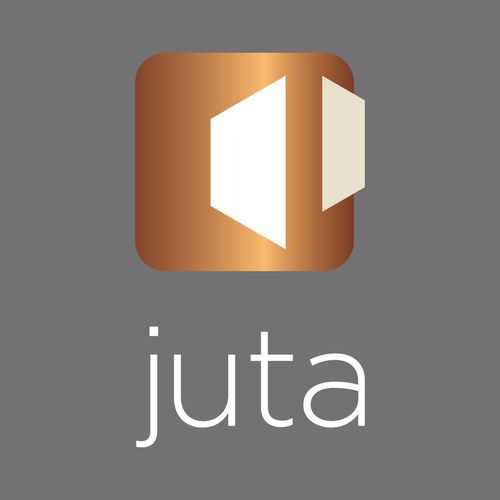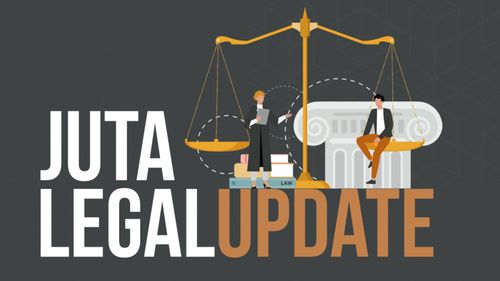- Home
- Products & Services
- About
- Blog
- Faq
- Contact Us
Corruption remains one of South Africa’s most pressing challenges, undermining governance, economic growth, and public trust. In his latest book, Corruption in South Africa: A Legal Perspective, Professor Mubangizi delves into the legal frameworks, institutional responses, and policy measures aimed at combating corruption. In this exclusive interview, he shares insights on the country’s legal battle against corruption, the role of the judiciary and civil society, and recommendations for strengthening anti-corruption efforts.
Juta: What motivated you to write Corruption in South Africa: A Legal Perspective?
JCM: South Africa faces many challenges including rampant crime, ever-increasing unemployment, persistent poverty, gender-based violence, inequality, low economic growth and corruption, among others. What makes corruption the biggest threat is because it negatively impacts on all the others. Over the years, my research has focused on addressing societal challenges. In South Africa, there are not many such challenges worse than corruption right now.
Juta: How does this book differ from other publications on corruption in South Africa?
JCM: Other publications mainly focus on political corruption, particularly in the context of the ruling party, causes of corruption, the economic and social ramifications of corruption and the efforts to fight or curb it. This book focuses on corruption in South Africa from a legal perspective. That’s the difference.
Juta: Can you provide an overview of some key chapters and their significance?
JCM: The first chapter, of course, is the introduction. Chapter 2 deals with the international legal anti-corruption framework and chapter 3 provides a comprehensive exposition of the existing constitutional and legislative framework for combating corruption in South Africa. Chapter 4 explores the nature of corruption in South Africa and its far-reaching implications on human rights within the country. It discusses the impact of corruption on both socio-economic rights and civil and political rights. The chapter makes recommendations on how corruption can be combated and its impact on human rights mitigated. Chapters 5 and 6 deal with corruption and public procurement in South Africa. The former looks at the laws relating to public procurement in South Africa and the shortcomings of South Africa’s current procurement system whereas the latter looks at corruption and public procurement from a competition law perspective.
Chapter 7 investigates and evaluates the legislative framework pertaining to money laundering and the civil forfeiture of the proceeds of crime in South Africa whereas chapter 8 looks at the key institutions involved in fighting corruption in South Africa and addresses the question whether these institutions are doing enough to address all forms of corruption in the country. Chapter 9 looks at the role of civil society in combating corruption and Chapter 10 draws attention to the manner in which the South African courts have dealt with the interpretation and enforcement of anti-corruption legislation. The focus of this chapter, therefore, is on the role that South African courts play in the fight against corruption, in particular, their role in enforcing anti-corruption laws. Finally, chapter 11 examines the role and purpose of commissions of inquiry in fighting corruption an makes a case for a permanent corruption commission, among other recommendations.
Juta: What are the most pressing legal challenges in combating corruption in South Africa today?
JCM: The most pressing legal challenges in combating corruption in South Africa today include weak law enforcement and prosecution, institutional weaknesses, state capture and political interference, whistleblower protection risks, money laundering and financial crimes, and rampant public procurement irregularities, to mention but a few.
Juta: How effective are South Africa’s existing anti-corruption laws and institutions?
JCM: Actually, South Africa boasts a robust legal framework aimed at combating corruption. It is not short of constitutional and legislative mechanisms for fighting corruption. The same applies to the number of key institutions involved in the fight against corruption. However, their effectiveness is compromised and affected by the challenges outlined above.
Juta: What role do civil society organisations and the judiciary play in tackling corruption?
JCM: Civil society organisations play an important role in exposing acts of corruption and promoting public sector efficacy. They also play an important role in advocacy and creating public awareness. Moreover, they provide platforms for reporting corruption, taking legal action against corrupt individuals and pushing for stronger anti-corruption laws. The judiciary plays an important role in the interpretation and enforcement of anti-corruption legislation. The case law shows that the courts have been steadfast in their interpretation and enforcement of anti-corruption legislation, particularly the Prevention and Combating of Corrupt Activities Act (12 of 2004). For this role to be more effective, collaboration between the judiciary and the various institutions charged with giving effect to anti-corruption measures and law is crucial.
Juta: How does corruption impact human rights and public service delivery in the country?
JCM: Firstly, coruption has an adverse impact on the enjoyment of human rights; secondly, corruption is itself a violation of human rights. It negatively affects the enjoyment of all categories of human rights – both civil and political rights on the one hand, and social, economic and cultural rights on the other. In so far as public service delivery is concerned, corruption also often leads to the misallocation of resources that should be directed towards social services such as healthcare, education, housing and social security. Moreover, corruption often leads to inefficiency and ineffectiveness in public service delivery. Because of corruption, bureaucratic processes become more convoluted as officials demand bribes or engage in corrupt practices. This results in delays, higher costs and reduced quality of services and negatively impacts on public service delivery.
Juta: What lessons can South Africa learn from international anti-corruption frameworks?
JCM: South Africa can learn several key lessons from international anti-corruption frameworks such as the UN Convention Against Corruption (UNCAC), the OECD Anti-Bribery Convention, and the African Union Convention on Preventing and Combating Corruption. Such lessons include strengthening anti-corruption institutions, the importance of whistleblower protection, the importance of transparency in public procurement, the need for international cooperation and the role of public participation. Political leadership and civic engagement are critical for reducing corruption. South Africa must foster a culture of accountability through civil society involvement and leadership commitment.
Juta: What recommendations do you make for policymakers and legal practitioners to strengthen the fight against corruption?
JCM: Recommendations for policymakers and legal practitioners to strengthen the fight against corruption would include, but are not limited to:
Strengthening legal and institutional frameworks
Strengthening law enforcement processes and sanctions
Encouraging public and private sector collaboration and participation
Encouraging and promoting active citizen participation to facilitate implementation of existing anti-corruption measures
Establishing a permanent and independent anti-corruption commission
Juta: How do you hope this book will influence legal education, public awareness, and governance reforms?
JCM: In so far as legal education is concerned, the book can serve as a foundational text in law schools, particularly in courses on constitutional law, criminal law, administrative law, and governance. It is also an important resource for providing students with practical insights into how corruption is prosecuted and prevented within South Africa’s legal framework. In terms of public awareness, the book can help citizens understand their rights, legal avenues for reporting corruption, and the responsibilities of public officials. Moreover, journalists, civil society organizations, and activists could use the book to highlight systemic corruption and advocate for stronger enforcement of laws. Policymakers can use insights from the book to draft or amend legislation to close legal loopholes and strengthen anti-corruption frameworks.
Get your copy now: https://bit.ly/3AS790Z

Kagiso Tiso & Kagiso Media Fraud Hotline: 0800 21 25 83


